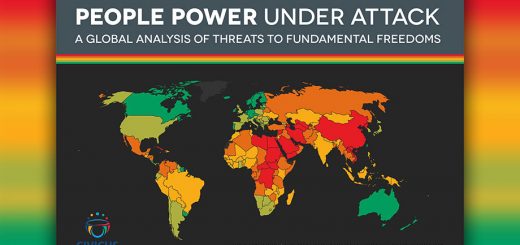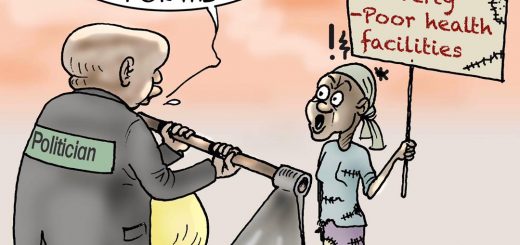Using Undercover Operations to detect, Investigate and deter Corruption in the Judiciary of Uganda

The public perception is that there is widespread corruption in the Judiciary of Uganda from the Supreme Court down to the Magistrates’ Courts. Corruption in the judiciary being an organized and often syndicated offense it is not possible to effectively detect, investigate and prevent it using a complaint based investigation system alone. In most instances Complaints are not satisfactorily handled, they are often made in bad faith and are often stale, in that they are made a long time after the corrupt act and after it has become impossible to obtain good evidence. The biggest flaw of a complaint based system is that most corruption instances are not reported because there is mutual benefit amongst the participants. In most cases both the judicial officer and the person compromising him or her benefit from the corrupt transaction.
The corruption in the Judiciary is even more difficult to detect and prevent because it is not only syndicated, it is also executed by highly intelligent and educated individuals who are skilled at covering their tracks and hiding illicitly acquired wealth and are experts on evidenciary rules. A litigant that wants to compromise a judicial officer will usually do so through the court clerk or a lawyer or a family member or driver of the judicial officer. These individuals are often loyal to the judicial officer and are themselves beneficiaries of the corruption. It is rare for these participants in the corruption to turn against each other and even if they did, as accomplices their evidence unless corroborated is weak and unreliable. When judicial officers receive bribes and other inducements through agents or nominees who are loyal to them, the complaint based system breaks down and becomes ineffective. Judicial officers who are openly corrupt such that they solicit and receive bribes openly from any member of the public are a very small minority. Furthermore, judicial work is such that it’s impossible to identify corruption from the work product of a particular judicial officer. The law is flexible and a judicial officer has discretion to decide a case on the facts and the law as he or she understands them. Due to this discretion it is difficult to impute corruption on the basis of the unsoundness of a decision.
Undercover operations are superior to a complaint based system and overt investigative techniques because they are used without the knowledge of the person being investigated. Overt investigative techniques are used openly with the knowledge of the person that is being investigated. They include interviews, inspections, searches, system studies, among others. Undercover or covert investigative techniques, include traps, surveillance, and sting operations, among others. They are special because the judicial officer or target is unaware that he or she is being investigated. It becomes difficult to destroy evidence and possible to secretly observe, record and document the criminal activity.
According to UNODC, during undercover operations investigators infiltrate criminal networks or pose as offenders to uncover, observe and document organised crime activity. Therefore, during an undercover operation law enforcement agents assume false identities or pretend to be criminals to observe, and document the activities of real criminals, and their associates with the view of obtaining intelligence or evidence to use against the criminals. In a typical sting operation targeting judicial officers, JSC or the Judiciary would set up a law firm, employ lawyers and file cases before the judicial officers. During the operation these undercover agents would observe and record the judicial officers that receive or solicit bribes and even create opportunities for the judicial officers to solicit and receive bribes as long as they provide opportunities that ordinary citizens normally provide or are capable of providing. If the opportunities to commit a crime provided by the undercover agent is not ordinary and raises to a level where it can be said that it induced the commission of the offense then it gives raise to an entrapment defense if criminal charges are filed. However, in civil proceedings for dismissal the entrapment defense doesn’t apply. For this reason, even when a judicial officer is given an extraordinary opportunity to solicit or receive a bribe, the JSC can still start dismissal proceedings. Under current law there is nothing to prevent the judiciary or JSC from carrying out such integrity tests since the defense of entrapment doesn’t apply in dismissal proceedings.
Imagine the deterrent effect it would have on judicial officers if every person they thought of dealing with is suspected of being an undercover agent. Imagine the effect on the vice of corruption in the judiciary if such integrity tests led to the dismissal of most of the corrupt judicial officers. Imagine if such sting operations exposed the corrupt judicial officers and led to their successful prosecution. It would become very expensive and costly to engage in corruption in the Judiciary thus having a deterrent effect on corruption.
Read More
- Ideal Amendments that should be included in the Magistrates Courts Amendment Bill 2026 of Uganda
- President Yoweri Kaguta Tibihaburwa Museveni is a minority President voted by only 7,946,772 (36.7%) out of 21,649,608 eligible Ugandan voters in the 2026 Presidential Elections
- Four years of IGG Beti Kamya drowned the Inspectorate of Government (IG) deeper into oblivion and irrelevancy but it Can be redeemed
- The Proposal to Make Magistrates Grade Ones Chief Magistrates is an efficient use of resources that will improve service delivery in Uganda
- If Magistrates Courts in Uganda are less competent and more prone to corruption does it mean that the poor deserve inferior justice to the rich.


